The KEF is coming
On 1st December, HEFCE launched a consultation on the new Knowledge Exchange Framework – the KEF – which was announced earlier in the Autumn by the Jo Johnson – as the “third leg” of the HE stool*. Putting aside the rather unflattering stool analogy, we prefer to think of this as the third side of the Fusion triangle. (For those of you who have not yet looked at the staff consultation on the BU2025 strategy, spoiler alert – the proposed new Fusion device is more of a vaguely triangular swirl. Much more inclusive and dynamic. And better colours than the red and yellow of the previous one.) But anyway, knowledge exchange is an important part of what we do at BU and this is important.
The consultation, which closes at the end of January, will give us a chance to contribute to the design of this framework. The HEFCE press release says “The KEF metrics system will provide more information for the public and businesses on the performance of universities in knowledge exchange – how they share knowledge, expertise and other assets for the benefit of the economy and society. The aim is to provide regularly updated data that enables fair comparison between institutions’ performance in knowledge exchange. This will help to support further improvements in universities and promote accountability, responsiveness to economic and societal needs and effective use of public funds.”
So much like the TEF this is being pitched as being about value for money and choice (for those interested in funding research or choosing where to work). And, like the REF (indirectly), and as with the TEF (at least as originally planned – more on this later), there are cash incentives for universities to do well in this new framework via HEIF funding.
“The KEF metrics will help support the Industrial Strategy, which includes the commitment announced on 27 November to increase Higher Education Innovation Funding to £250 million by 2020-21. This increase will allow Universities to work with businesses of all sizes to support the delivery of the Industrial Strategy in diverse ways.”
And of course, like the TEF, the key to all of it is the metrics. A metrics working group has been established – details of the people are below.
There are only 5 questions, as follows.
- What approaches and data need to be used to ensure a fair and meaningful comparison between different universities, taking into account factors that might impact individual institution’s knowledge exchange performance (such as research income, size or local economic conditions), whilst allowing identification of relative performance? How should benchmarking be used?
- Other than HE-BCI survey data, what other existing sources of data could be used to inform a framework, and how should it be used?
- What new (or not currently collected) data might be useful to such a framework?
- How should KEF metrics be visualised to ensure they are simple, transparent and useful to a non-specialist audience?
- Any other comments?
This is a bit of a concern. If it measures research income, there is a great risk of it being circular – and therefore not inclusive across the sector. This would conflict with the principles behind the Industrial Strategy – which are about focussing on areas of strength – wherever they are. We would prefer it not to be entirely metrics based (as we said for the TEF – where the written submission became a key part of the process and had a significant impact on the outcome in some cases).
Questions 2 and 3 are the opportunities to get into this debate – even through the questions are framed as questions about metrics. The letter from the Minister commissioning the work is a bit more helpful: “The design process should: …
- Consider whether additional metrics can be devised and collected to provide a more comprehensive view of the effectiveness of universities’ external engagement, whilst having regard to the burden and cost of collection.
- Take into account factors that might impact individual universities’ knowledge exchange performance, such as the university’s research income, size or local economic conditions, to ensure comparability between institutions …”
We will be working with RKEO to draft a BU response to this, so please contact policy@bournemouth.ac.uk if you would like to contribute to this process.
The key people involved: “The technical group, chaired by Professor Richard Jones FRS, University of Sheffield, will advise HEFCE and later RE on the design and delivery of the new KEF metrics system. The group’s members have been chosen to provide expertise in knowledge exchange metrics and external insights on performance. The members of the KEF metrics technical advisory group are:
- Chair: Professor Richard Jones, FRS, Professor of Physics, University of Sheffield. EPSRC Council Member.
- Tomas Coates Ulrichsen, Research Associate, Centre for Science, Technology and Innovation, University of Cambridge.
- Alice Frost, Head of Knowledge Exchange policy, HEFCE / Research England.
- Alice Hu Wagner, Managing Director for Strategy, Economics and Markets, British Business Bank.
- Professor Graeme Reid, Professor of Science and Research Policy, University College London. Member of the Research England Council.
- Mr Peter Saraga CBE, FREng, Senior Independent Member on the Research England Council. Former Managing Director of Philips Research Laboratories UK, Chair of HEFCE’s UKRPIF panel, and formerly President of the Institute of Physics and Vice-President of the Royal Academy of Engineering.
- Stian Westlake, Policy Adviser to the Minister for State for Universities, Research and Innovation at Department for Business, Energy and Industrial Strategy (BEIS).
- BEIS observer: Carolyn Reeve / Thomas Crawley.
- HEFCE / Office for Students observers: Mario Ferelli, Richard Puttock
- Higher Educations Statistics Agency (HESA) observer: Andy Youell, Director of Data Policy and Governance, HESA.
- Head of secretariat: Hamish McAlpine, HEFCE / Research England
Professor Trevor McMillan, Vice-Chancellor of Keele University, has been leading work on the principles and good practices of university knowledge exchange since 2015. He will continue to do so, including providing advice to UK Research and Innovation (UKRI). For the KEF metrics system, Professor McMillan and his university expert group will advise on the value of the exercise for good practice development within universities”.
*(with REF and TEF – we’re in TLA chaos. Even though the TEF is now TESOF (SO = student outcomes) but we’re not allowed to call it that). Arguably as has been noted elsewhere, the KEF should be KEEF – Knowledge Exchange Excellence Framework). As we have also noted before, many voices have suggested that the OfS should be the OfSHE (Office for Students and Higher Education). But TLAs are the thing, it seems).
And…the major review of fees and funding….
We have discussed the options for fees and funding a lot recently, as the “national debate” that followed the election was continued over the summer and the debate shifted to whether there would be a review or not after the Conservative Party Conference in October. The Minister told Wonkfest in early November to watch for it in the budget, but no…. The BBC reported on 1st December that it is actually happening – so please keep watching this space.
Future of skills and lifelong learning report
The Government Office for Science have issued the Future of Skills and Lifelong Learning report. In 112 pages it sets out a pathway to develop skills in the UK to support the Industrial Strategy, productivity and improve wages (and health and wellbeing along the way).
The focus on workplace learning, placements and work experience, and the role of extra-curricular activities are very interesting and consistent with the BU approach in many ways – so this is interesting for us. It also raises interesting questions about supply and demand and information flows.
To quote from the executive summary:
- “Young adults in the UK have relatively poor literacy and numeracy and there are signs that we are falling further behind international competitors. …Seven OECD countries have numeracy scores equal to or higher than the UK for all age groups, and the number of countries increases considerably if the UK’s high-performing 60-65 age group is excluded. Literacy for UK 16-19 year-olds is ahead of only Chile and Turkey among a group of 24 (mostly OECD) countries. Literacy and numeracy performance varies between UK regions, with London and the South East achieving the highest scores …There is also evidence of intergenerational effects, with poor parental attainment reflected in the educational outcomes of the child. Breaking out of this cycle may require interventions that target both the parent and child, for example family learning programmes. Improvements to literacy and numeracy continue beyond school and higher education into the early years of work, suggesting that workplace environments play an important role in developing these skills.
- Employers believe labour market entrants are not properly prepared for the workforce; again the UK compares poorly against other countries. Employers are looking not only for better literacy and numeracy, relevant qualifications and/or discipline-specific training but also for more positive attitudes towards work as well as ‘character’ attributes. Greater collaboration between employers and education providers may help to ensure that education-leavers are equipped with the skills that are in demand. Work placements and experience can help individuals gain the non-academic skills desired by employers. However, only around one-third of employers offer these opportunities and they are predominantly found in the South East of England. Informal learning also has a part to play, including participation in peer-to-peer learning or sports and other extra-curricular activities.
- The UK has relatively large mismatches between the supply of and the demand for skills. Skills underutilisation is particularly high in the UK, while at the same time there are shortages of some particular high-level skills. Such mismatches imply that education providers are not offering, or students are not selecting, the courses that match with employers’ skills needs, and that future skill needs are not being fully anticipated. Improving the quality of and access to labour market information may be able to help address this.
- Many places and sectors in the UK are in “low skills equilibrium”. A low skills equilibrium occurs when the availability of low-skilled jobs is matched by a low-skilled workforce, such that students have limited incentives to gain higher skills (or to remain in that place if they have them) and employers adapt to but are constrained by the skills supply. This is a stable equilibrium that can only be changed if supply and demand for skills are addressed together. If only the supply of skills improves, not the demand, it will create surplus and underutilisation or prompt migration to where those skills are in demand. This suggests that close partnerships between employers and providers of education and training are required to avoid mismatches, or improved infrastructure is needed to facilitate longer commuting distances.
- Participation in formal learning declines with age. Adult learning is in overall decline and is disproportionately taken up by wealthier, more highly skilled individuals. Formal workplace training has also declined over the last 15 years. This may in part be explained by the fact that learning by adults aged 55+ has shifted from formal to ‘informal’ channels in the last decade or so, with higher socio-economic groups more likely to engage in such self-directed or peer-driven learning, potentially because of positive prior experience of education. While cost and lack of time are reported as common barriers to adult learning for individuals of all skill levels, individuals with no qualifications are more likely to cite attitudinal barriers including lack of confidence, lack of interest, and feeling too old to learn. However, low skilled individuals or those from poor socio-economic backgrounds and minority groups, reap the greatest rewards from learning. If the former trend persists, it suggests that older and particularly lower skilled individuals will be especially vulnerable in a future labour market that is likely to place a premium on lifelong learning.
And one conclusion:
- “Analysis of the wage benefits associated with higher levels of education suggests that the returns on learning are substantial. A 2013 estimate found that an individual who has earned a bachelor’s degree will earn on average £210,000 more over the course of their lifetime, after taxes and loan costs, than someone with only A-levels. The benefit is greater for women, at £252,000 than for men, at £168,0006 (BIS, 2013b, p.5).”
Industrial Strategy
As noted, this was published last week and we are still digesting it (another 100+ pages). However, at least the models are simplified from the Green Paper (10 pillars etc). Now it has 5 foundations: Ideas, People, Infrastructure, Business Environment and Places and 4 grand challenges. The paper says “Our focus on them responds to the detailed feedback to the Green Paper”.
To coincide with the publication of the Industrial Strategy White Paper, UUK has published new guidance for businesses on how best to involve and engage with universities when developing a sector deal.
So what is actually going to happen? There is more detail below – and some practical steps to implement it:
- “We will create an independent Industrial Strategy Council that will develop measures to assess and evaluate our Industrial Strategy and make recommendations to the government. The Council will have access to relevant government data and will be funded to commission specific evaluation projects as appropriate. It will be drawn from leading business men and women, investors, economists and academics from across the UK.”
- “Investing in R&D to transform our economy. For the UK to become the most innovative country in the world we need a generational increase in public and private R&D investment. In this strategy we commit to reach 2.4 per cent of GDP investment in R&D by 2027 and to reach 3 per cent of GDP in the longer term, placing us in the top quartile of OECD countries. If we meet this target we will transform our economy. It could increase public and private R&D investment by as much as £80bn over the next 10 years, with much wider benefits across the UK economy.”
To do this:
- As a first step we will invest an additional £2.3bn over what was previously planned in 2021/22, raising total public investment in R&D to approximately £12.5bn in that year alone.
- We will work with industry in the coming months to develop a roadmap for meeting this target. This will provide a framework to drive business investment in R&D and focus on key sectors, technologies and clusters, including by optimising government investment to drive private investment in R&D and considering further opportunities to improve the business environment, including access to finance, regulatory frameworks, and intellectual property. This will maximise the impact of public investment in science and innovation to support businesses to invest more and drive outputs to realise our commitment to invest 2.4 per cent of GDP in R&D.
- We will invest a further £725m in a second wave of the Industrial Strategy Challenge programme across the UK to respond to some of the greatest global challenges and opportunities – from climate change to automation….
- We will invest £300m over the next three years in world-class talent including in priority areas aligned with the Industrial Strategy, such as artificial intelligence, to enhance our skilled workforce and attract private sector R&D investment. This investment will focus on collaboration and the flow of people between industry and academia and interdisciplinary and cutting-edge research and innovation to support the Industrial Strategy programme and the Grand Challenges. Support will range from Knowledge Transfer Partnerships and PhD programmes, with strong and flexible links to industry, to prestigious awards that support rising stars and the top talent from both the UK and overseas.
- We will work with our leading universities, research institutes and UK Research and Innovation to increase global investors’ R&D activities taking place in the UK. Of the world’s 2,500 top R&D investors, just 50 businesses are responsible for 40 per cent of private sector investment globally. If we could attract an additional five per cent of R&D from these top 50, UK based R&D would increase by around a third.
- We will work with UKRI to develop a new competitive Strategic Priorities Fund…This will support high quality R&D priorities which would otherwise be missed – multidisciplinary and inter-disciplinary programmes identified by researchers and businesses at the cutting edge of research and innovation. …. UK Research and Innovation strategy will deliver a real-terms increase in council budgets of approximately 20 per cent between 2015/16 and 2019/20. We will also increase support for Quality-Related research through Research England. This recognises the vital importance of providing underpinning funding for our world-leading universities to invest in the excellence and impact of their research and ensure the sustainability of our research infrastructure.
- We will improve the UK tax system to support innovation. ….
- We will make it easier to finance innovation by increasing the resources for government agencies that promote and fund innovation like Innovate UK – our world leading innovation agency that supports businesses across the UK to collaborate and innovate – and the British Business Bank..
- We are also allocating a further £44m of grant funding to enable Innovate UK to fund £150m of responsive grant competitions in 2017/18. This will allow it to support hundreds more high-growth businesses, collaborations and industries to innovate and compete in future global markets. In addition, Innovate UK will pilot new ways of financing innovation: – £50m Innovation Loans pilot over the next two years to target the most promising projects in viable businesses on the cusp of commercialisation, but not yet ready to access loans from commercial lenders; and – an Investment Accelerator pilot to bring in seed equity alongside grant funding by matching the most innovative early stage businesses with investors. …
- We will develop an agile approach to regulation that promotes innovation, the growth of new sectors, and innovative market entrants while ensuring effective protections for citizens and the environment. An example is establishing a clear framework for autonomous vehicles and, through our Digital Charter, building agreement on the ethical and effective use of new technologies and data. …
- We will improve public procurement as an important source of finance for innovative businesses that does not dilute their equity and gives an endorsement for others to invest. …. we will refocus the [Small Business Research Initiative] SBRI programme to increase its impact for innovative businesses, aligning it with Grand Challenges and building capability in the public sector to drive productivity by adopting SBRI solutions. As a first step, this month we announced a new GovTech Catalyst with a GovTech Fund of up to £20m over three years, which will use SBRI to support tech firms to provide the government with innovative solutions for more efficient public services
“We will:
Ideas:
- raise total research and development(R&D) investment to 2.4 per cent of GDP by 2027;
- increase the rate of R&D tax credit to 12 per cent;
- invest £725m in new Industrial Strategy Challenge Fund programmes to capture the value of innovation;
People
- establish a technical education system that rivals the best in the world to stand alongside our world-class higher education system;
- invest an additional £406m in maths, digital and technical education, helping to address the shortage of science, technology, engineering and maths (STEM) skills;
- create a new National Retraining Scheme that supports people to re-skill, beginning with a £64m investment for digital and construction training;
Infrastructure
- increase the National Productivity Investment Fund to £31bn, supporting investments in transport, housing and digital infrastructure;
- support electric vehicles through £400m charging infrastructure investment and an extra £100m to extend the plug-in car grant;
- boost our digital infrastructure with over £1bn of public investment, including £176m for 5G and £200m for local areas to encourage roll out of full-fibre networks;
Business Environment
- launch and roll-out Sector Deals – partnerships between government and industry aiming to increase sector productivity. The first Sector Deals are in life sciences, construction, artificial intelligence and the automotive sector;
- drive over £20bn of investment in innovative and high potential businesses, including through establishing a new £2.5bn Investment Fund, incubated in the British Business Bank;
- launch a review of the actions that could be most effective in improving the productivity and growth of small and medium-sized businesses, including how to address what has been called the ‘long tail’ of lower productivity firms;
Places
- agree Local Industrial Strategies that build on local strengths and deliver on economic opportunities;
- create a new Transforming Cities fund that will provide £1.7bn for intra-city transport. This will fund projects that drive productivity by improving connections within city regions; and
- provide £42m to pilot a Teacher Development Premium. This will test the impact of a £1000 budget for high-quality professional development for teachers working in areas that have fallen behind.
- These policies, alongside the many others set out in this document, are the first strategic actions of a long-term approach to transform our levels of productivity and our earning power as a nation, as businesses, as places, and as individuals. We are ready to be judged on our performance in implementing them.
Student visas
The Home Office released quarterly and annual immigration statistics including data on study visas here: Why do people come to the UK? (3) To study
The data relating to study found in the year ending September 2017:
- An increase of 8 per cent in Short-term student visas
- A 6 per cent increase in University sponsored study visa application
- Increases of 9 per cent for Russell Group universities to 87,362,
- A decrease of 4 per cent in applications for the Further education sector
Nationalities data for the year ending September 2017 (top 5):
- China: +15 per cent
- United States: +6 per cent
- India: +27 per cent
- Hong Kong: +5 per cent
- Saudi Arabia: -2 per cent
The lead story is the rise in visa applications for Indian students, with the first annual rise in applications since 2010: THE Article. [thanks to Dods for the summary].
Jo Johnson has tweeted about this.
Committee inquiries
Two parliamentary committees on issues of key importance to the higher education sector are now taking written evidence.
The Joint Committee on Human Rights inquiry into freedom of speech in universities has a deadline for written evidence of 15 December, while the Treasury Committee’s inquiry into student loans will accept submissions until 31 December.
Earlier this week Professor Julia Buckingham, Vice-Chancellor of Brunel University London, represented UUK before the House of Lords Economic Affairs Committee in relation to its ongoing inquiry into the economics of higher, further and technical education.
Subscribe!
To subscribe to the weekly policy update simply email policy@bournemouth.ac.uk
JANE FORSTER | SARAH CARTER
Policy Advisor Policy & Public Affairs Officer
65111 65070
Follow: @PolicyBU on Twitter | policy@bournemouth.ac.uk


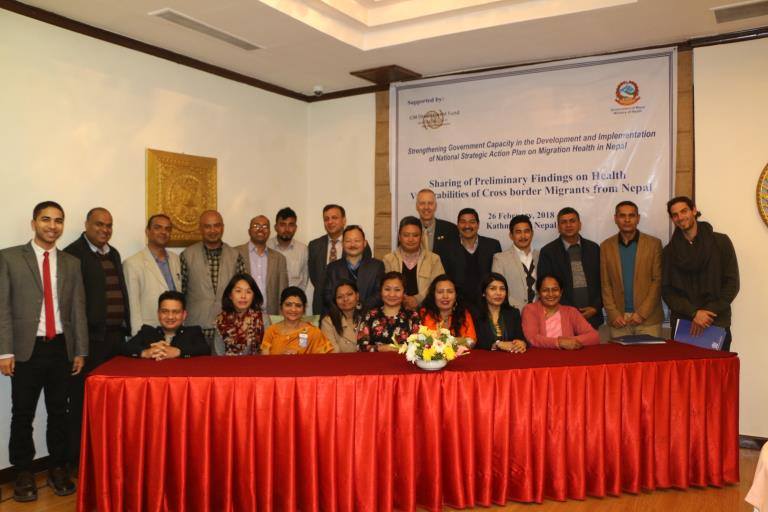

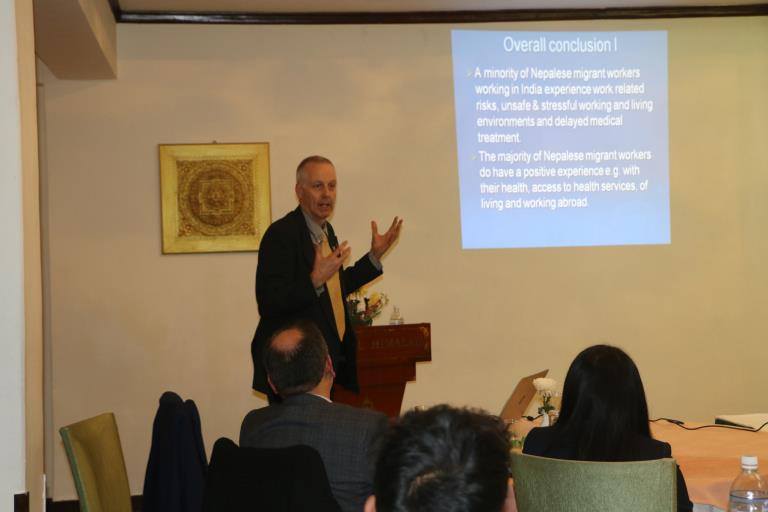
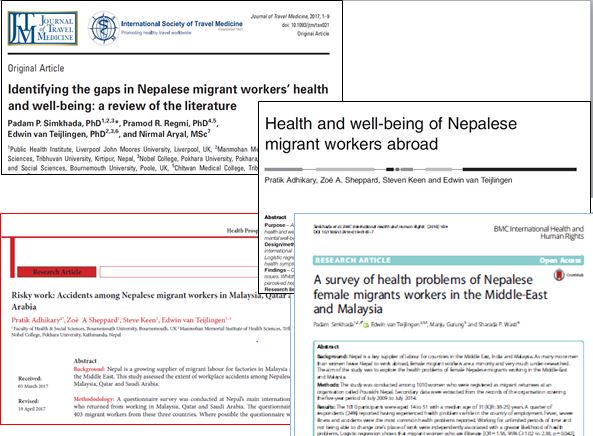
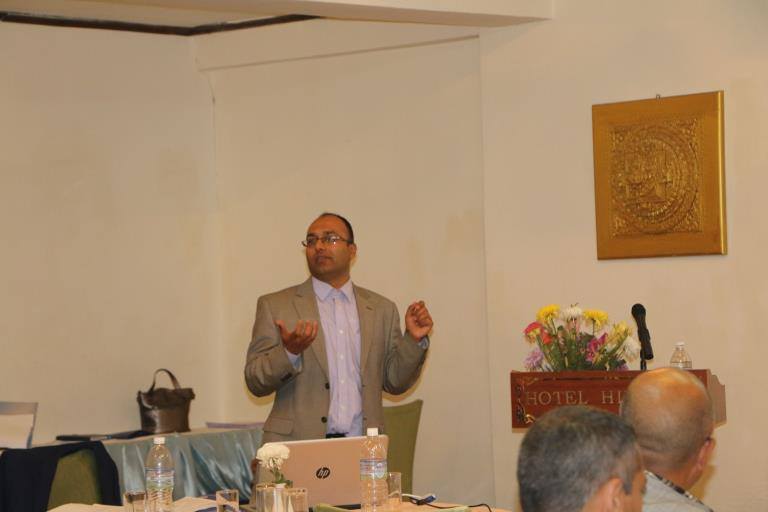
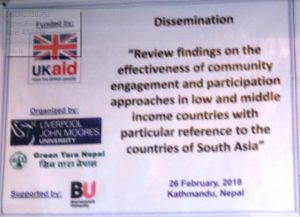
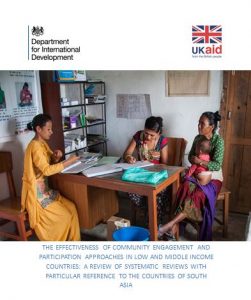
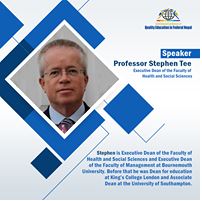
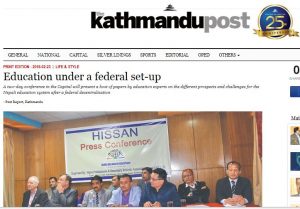




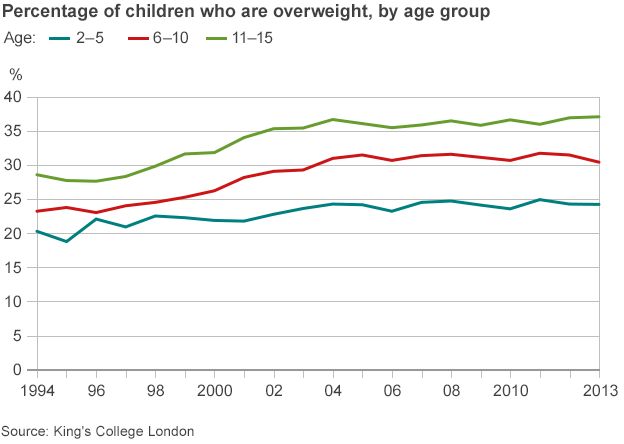













 New CMWH paper on maternity care
New CMWH paper on maternity care From Sustainable Research to Sustainable Research Lives: Reflections from the SPROUT Network Event
From Sustainable Research to Sustainable Research Lives: Reflections from the SPROUT Network Event REF Code of Practice consultation is open!
REF Code of Practice consultation is open! ECR Funding Open Call: Research Culture & Community Grant – Apply now
ECR Funding Open Call: Research Culture & Community Grant – Apply now ECR Funding Open Call: Research Culture & Community Grant – Application Deadline Friday 12 December
ECR Funding Open Call: Research Culture & Community Grant – Application Deadline Friday 12 December MSCA Postdoctoral Fellowships 2025 Call
MSCA Postdoctoral Fellowships 2025 Call ERC Advanced Grant 2025 Webinar
ERC Advanced Grant 2025 Webinar Update on UKRO services
Update on UKRO services European research project exploring use of ‘virtual twins’ to better manage metabolic associated fatty liver disease
European research project exploring use of ‘virtual twins’ to better manage metabolic associated fatty liver disease